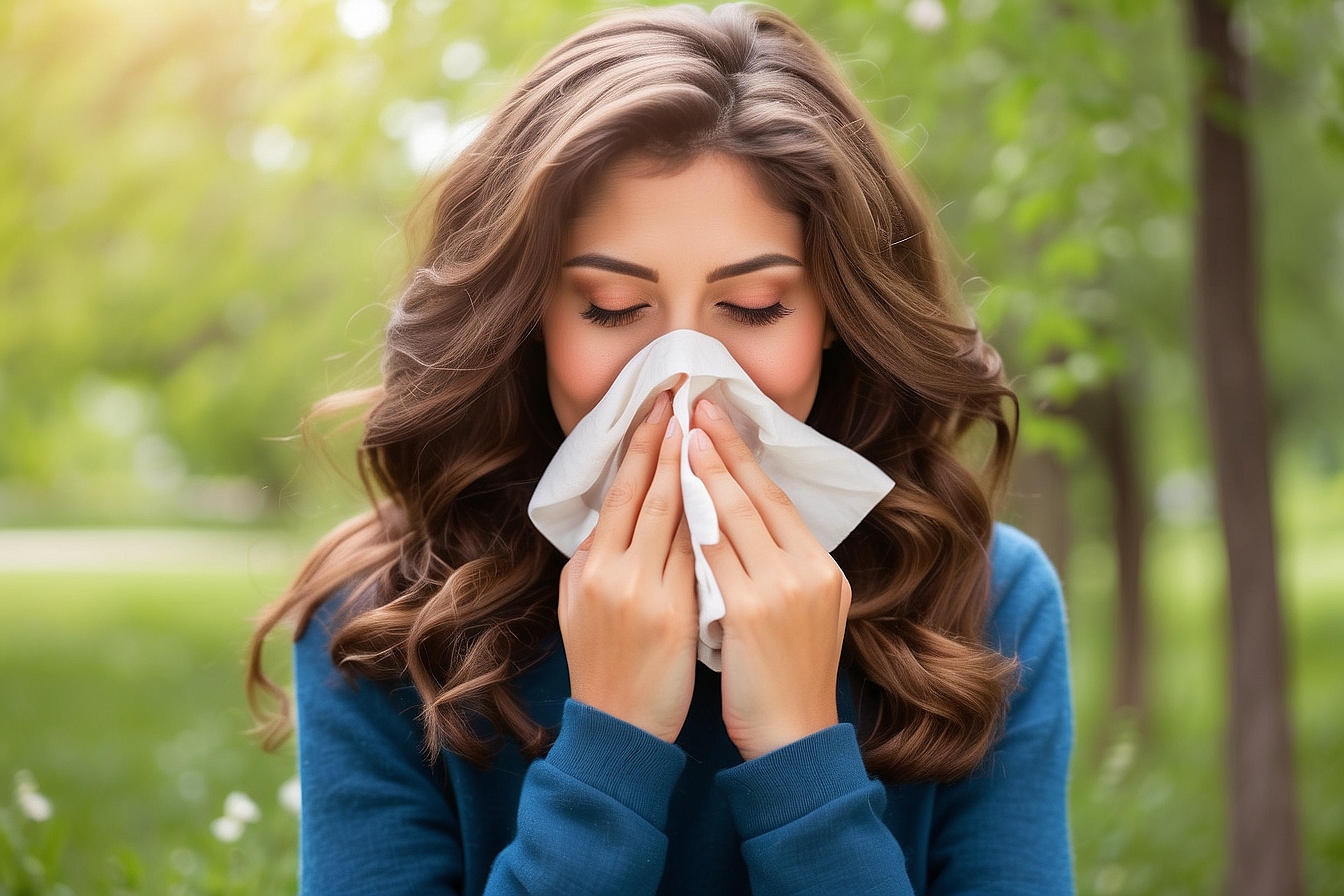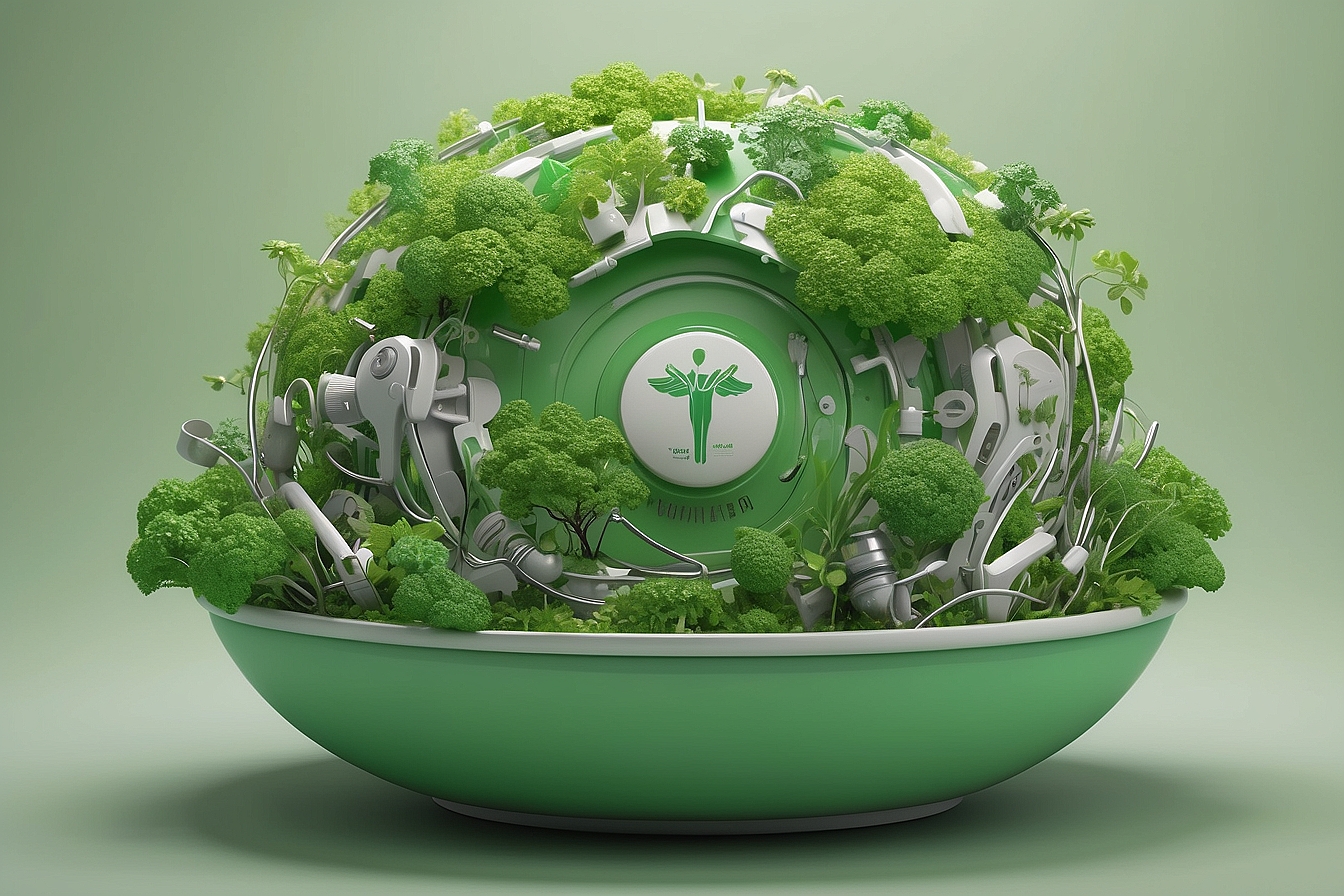We’re all too familiar with the hustle and bustle that fills our days, leaving us seeking respite and serenity afterwards. Like many of us, you’ve likely found yourself yearning for a natural escape from the pressures of daily life.
Our exploration into the remedies provided by nature has revealed that herbal teas are not only a source of comforting warmth but also brim with benefits to gently ease both body and soul into relaxation.
Allow yourself to be enveloped in the tranquil embrace of herbal infusions.
Key Takeaways
- Herbal teas provide a wide range of health benefits including promoting relaxation, supporting digestion, boosting immunity and offering antioxidant properties.
- Many herbal teas are caffeine – free and can be enjoyed as part of a bedtime routine to help improve sleep quality due to their natural sedative effects.
- Drinking herbal infusions regularly contributes to hydration and can be a delicious way to increase one’s daily fluid intake while also reaping medicinal benefits.
- Herbal teas like chamomile, peppermint, ginger, echinacea and turmeric offer specific health advantages such as stress relief, digestive aid, immune support and anti-inflammatory effects.
- It is important to consider serving sizes when brewing herbal tea for maximum benefits; typically 1 – 2 teaspoons per 240 millilitres of water is recommended.
Types of Herbal Teas and Infusions
There are a wide variety of herbal teas and infusions to choose from, each with their own unique benefits. From chamomile and peppermint to ginger and turmeric, there’s something for everyone.
These natural remedies can aid in relaxation, digestion, immunity, and more.
Chamomile Tea
We often reach for chamomile tea after a long day, and for good reason. This caffeine-free herbal infusion has been used for centuries to soothe nerves and help with sleep. Its delicate apple-like fragrance and mild flavour make it a favourite among teas, especially before bedtime.
Chamomile tea’s benefits stem from its antioxidants, which contribute to relaxation and stress relief.
Drinking chamomile tea supports our health in several ways beyond calming the mind. It can aid digestion after meals, easing discomfort that comes from overeating or consuming rich foods.
Moreover, we find it aligns perfectly with environmentally conscious values since chamomile flowers can be grown without harming natural ecosystems – offering us peace of mind alongside physical well-being.
Hibiscus Tea
Hibiscus tea offers numerous health benefits, including its rich source of antioxidants that promote heart health and may aid in weight loss. This caffeine-free herbal infusion is also known for its medicinal uses, often used to lower high blood pressure and reduce cholesterol levels.
Additionally, the floral beverage is praised for its potential to support digestive health by relieving constipation and acting as a natural diuretic. Hibiscus tea can be a great addition to one’s daily routine for those seeking natural ways to improve their overall well-being.
Furthermore, this vibrant red brew can contribute to conservation efforts as it does not require the use of pesticides or synthetic fertilisers during cultivation. Its sustainability makes it an ideal choice for environmentally conscious individuals who want to enjoy the numerous health benefits while supporting environmental causes.
Incorporating hibiscus tea into your daily regimen could be a simple yet impactful way of promoting both personal wellness and environmental preservation.
Peppermint Tea
Transitioning from the refreshing taste of hibiscus tea, let’s explore the invigorating benefits of peppermint tea. Peppermint tea is a caffeine-free herbal infusion that offers various health advantages.
It is known for its ability to support digestion and alleviate symptoms such as bloating and indigestion. Additionally, peppermint tea can help to freshen breath and provide relief from tension headaches.
With its cooling properties, this herbal tea is an excellent choice for those seeking a natural way to unwind and promote overall well-being.
Peppermint tea also possesses antioxidant properties which can contribute to maintaining a healthy immune system. Its soothing effect on the stomach makes it an ideal choice after meals or during periods of digestive discomfort.
Ginger Tea
Transitioning from the refreshing taste of peppermint tea, ginger tea offers a warm and spicy flavor with numerous health benefits. Ginger tea is well-known for its ability to aid digestion, reduce nausea, and alleviate menstrual discomfort.
This caffeine-free herbal infusion also possesses anti-inflammatory properties that can help support the immune system and promote overall well-being.
Ginger tea is often used as a natural remedy to alleviate symptoms of colds and flu due to its warming effect on the body. The nutritional benefits of ginger tea make it an excellent choice for those seeking a soothing beverage that not only tastes great but also provides medicinal uses.
Echinacea Tea
Echinacea tea helps in boosting the immune system and fighting off colds and infections. It is known for its anti-inflammatory, antioxidant, and antimicrobial properties, making it a popular choice during cold and flu season.
Consuming Echinacea tea regularly may support overall immune health and reduce the duration of illness. Brewing Echinacea tea is simple – just steep dried or fresh Echinacea leaves in hot water for 5-10 minutes before enjoying its health benefits.
Moving on to another herbal powerhouse, let’s explore the benefits of Rooibos Tea.
Rooibos Tea
Rooibos tea, also known as red bush tea, offers a caffeine-free and refreshing beverage with numerous health benefits. It is packed with antioxidants that support the immune system and promote overall well-being.
This herbal infusion provides relaxation without the stimulating effects of caffeine, making it an excellent choice for those seeking a calming cup of tea. Rooibos tea can also aid digestion and help with weight management, making it a versatile addition to any wellness routine.
Now moving on to “Lemon Balm Tea” which offers its own unique set of benefits for health and well-being.
Lemon Balm Tea
Lemon balm tea offers a refreshing citrusy flavor and is known for its calming properties. It’s often used to reduce stress, anxiety, and promote relaxation. The antioxidant properties of lemon balm tea make it a great choice for supporting overall well-being and boosting the immune system.
Its subtle natural sweetness makes it an enjoyable beverage that can be enjoyed hot or cold.
To get the most out of your lemon balm tea, consider brewing it with freshly boiled water and allowing it to steep for 5-10 minutes to extract all the beneficial compounds. A touch of honey or a slice of fresh lemon can complement its flavor beautifully.
Incorporating lemon balm tea into your daily routine can be a delightful way to unwind and support your health naturally.
Rose Hips Tea
Rose hips tea is packed with vitamin C, making it a great choice for bolstering the immune system. This herbal infusion also contains antioxidants and anti-inflammatory properties that can help protect against chronic diseases and promote overall well-being.
Additionally, rose hips tea is caffeine-free, which makes it an excellent option for those looking to reduce their caffeine intake while still enjoying a flavoursome and healthful beverage.
This herbal blend of rose hips can be particularly beneficial for individuals who are environmentally conscious as it supports sustainable practices. Furthermore, harvesting wild rose hips encourages conservation efforts by utilising natural resources in a responsible manner.
Passionflower Tea
Moving on from the benefits of rose hips tea, let’s explore the calming effects of passionflower tea. Passionflower tea is known for its ability to reduce anxiety and improve sleep quality.
It contains flavonoids that have a soothing effect on the nervous system, helping to alleviate stress and promote relaxation. Additionally, passionflower tea has been used traditionally as a mild sedative and has shown potential in easing symptoms of insomnia and restlessness.
Furthermore, passionflower tea may also have digestive benefits due to its natural compounds that can help relax the muscles in the digestive tract. This can aid in relieving indigestion and reducing feelings of discomfort after meals.
Cinnamon Tea
Cinnamon tea offers numerous health benefits, including its ability to help regulate blood sugar levels and lower the risk of heart disease. The antioxidants found in cinnamon can also help combat inflammation and protect the body from oxidative stress.
Additionally, this aromatic herbal tea may promote better digestion and provide relief from bloating and indigestion. Its naturally sweet flavour makes it a delightful caffeine-free alternative for those looking to curb their sugar cravings while enjoying a warm and comforting beverage.
Furthermore, consuming cinnamon tea regularly may support improved cognitive function and aid in weight management goals due to its potential to help control appetite. With its pleasant taste and array of potential health advantages, integrating cinnamon tea into your daily routine can be an enjoyable way to support your overall well-being.
Turmeric Tea
After exploring the benefits of Cinnamon Tea, it’s time to delve into the potential advantages of Turmeric Tea. Renowned for its vibrant yellow color and earthy flavor, turmeric tea is known for its anti-inflammatory properties.
This caffeine-free herbal infusion holds a wealth of antioxidants and may support digestion, liver function, and overall immune health. Health-conscious individuals seeking natural ways to combat inflammation or wishing to incorporate additional antioxidants into their diet could consider adding a cup of turmeric tea to their daily routine.
Benefits of Herbal Teas
Herbal teas offer a range of benefits such as relaxation, stress and anxiety relief, antioxidant properties, digestive aid, detoxification, and hydration. These caffeine-free options are packed with health benefits that promote overall well-being.
Relaxation
Herbal teas such as chamomile, lavender, and passionflower can promote relaxation and calmness due to their natural sedative properties. These caffeine-free options contain compounds that have been shown to reduce stress and anxiety, making them an excellent choice for winding down after a long day.
The soothing aroma and warmth of herbal teas also provide a comforting ritual that can help to alleviate tension and promote a more peaceful state of mind.
In addition to their calming effects on the mind and body, certain herbal teas like peppermint and lemon balm are known for their muscle-relaxing properties which can further enhance the relaxation experience.
Stress and Anxiety Relief
Transitioning from relaxation to stress and anxiety relief, herbal teas such as chamomile, passionflower, and lemon balm have been long revered for their calming properties. These herbs contain natural compounds that can help ease tension, promote relaxation, and reduce feelings of anxiety.
The soothing effects of these herbal teas make them an excellent choice for those seeking a natural way to alleviate stress without the side effects often associated with pharmaceutical solutions.
Incorporating these caffeine-free herbal teas into your daily routine can provide a gentle yet effective approach to managing stress and promoting overall well-being.
When feeling overwhelmed or anxious, enjoying a cup of herbal tea can create a peaceful moment to pause and unwind. The act of brewing and sipping on warm herbal infusions also encourages mindfulness – an essential practice in reducing stress levels.
Moreover,.
Antioxidant Properties
Herbal teas are rich in antioxidants, which help protect the body from oxidative stress and damage caused by free radicals. Antioxidants such as flavonoids, polyphenols, and catechins found in herbal teas can neutralise harmful molecules and reduce the risk of chronic diseases.
These compounds also have anti-inflammatory properties that support overall health and well-being.
Incorporating antioxidant-rich herbal teas into your daily routine can contribute to a healthier lifestyle while promoting environmental sustainability. By choosing caffeine-free herbal infusions with potent antioxidant properties, you not only benefit yourself but also support conservation efforts by opting for natural, plant-based remedies over conventional products with synthetic additives and packaging materials.
Digestive Aid
Herbal teas can provide digestive aid by soothing the gastrointestinal tract and promoting healthy digestion. Many herbal teas, such as ginger tea and peppermint tea, are known for their ability to relieve indigestion, bloating, and stomach discomfort.
The natural compounds found in these teas can help to relax the muscles of the digestive system and reduce inflammation, leading to improved overall digestion.
In addition to aiding with digestion, herbal teas like chamomile and cinnamon can also support a healthy gut microbiome, which is essential for proper nutrient absorption and immune function.
Detoxification
To maintain optimum health, herbal teas play a vital role in supporting the body’s natural detoxification processes. The antioxidants found in herbal teas aid in eliminating toxins from the body and promote liver function.
Certain herbs like ginger, dandelion, and milk thistle have been traditionally used to support the body’s detoxification pathways, aiding in cleansing and purifying the system. Additionally, consuming herbal infusions such as nettle tea may assist in flushing out excess fluids from the body through its diuretic properties without depleting essential nutrients.
Hydration
Transitioning from the benefits of herbal teas for detoxification, ensuring proper hydration is essential to support overall health and wellness. Herbal teas provide a delicious and caffeine-free way to increase daily fluid intake while enjoying added medicinal benefits.
Hydration through herbal tea consumption can contribute to improved digestion, immune system support, and enhanced detoxification processes within the body. Additionally, incorporating these hydrating herbal infusions into your routine can assist in maintaining healthy skin and promoting weight management.
Choosing herbal teas that promote hydration assists in meeting daily water intake goals while reaping the natural health benefits offered by various blends. Staying hydrated with these nourishing concoctions supports environmental conservation efforts as it eliminates the need for single-use plastic bottles often used for commercial beverages.
How to Brew Herbal Tea for Maximum Benefits
To brew herbal tea for maximum benefits, it is important to choose the right type of tea that suits your needs and preferences. Using high-quality herbs and following proper brewing techniques will ensure that you get the most out of your herbal infusion experience.
Choosing the Right Type of Tea
When choosing the right type of tea, it’s important to consider your specific health needs and preferences. For relaxation and stress relief, chamomile or passionflower tea can be great options.
If you’re looking for digestive aid, peppermint or ginger tea could be beneficial. For antioxidant properties, rooibos or hibiscus tea are excellent choices. Consider turmeric tea for its anti-inflammatory benefits, while cinnamon tea may help with blood sugar control.
When choosing a herbal infusion, keep in mind any allergies or potential interactions with medications. It’s also essential to select organic teas to support conservation and environmental sustainability.
Brewing Techniques
To brew herbal tea for maximum benefits, start by selecting the right type of tea. Use fresh, clean water and bring it to a boil. Place the herbs in a teapot or infuser, pour the hot water over them, and cover to steep.
Depending on the type of tea, steeping times may vary from 5-10 minutes. For optimal results, follow recommended serving sizes to ensure you get all the health benefits without excess.
Experiment with different brewing methods and temperatures to find what works best for your favourite herbal teas.
Recommended Serving Sizes
When brewing herbal teas, it is important to consider the recommended serving sizes to maximise their benefits. The typical serving size for most herbal teas is around 1-2 teaspoons of dried herbs per 8 ounces of water.
It’s essential to follow the suggested measurements and not exceed the recommended amount as herbal teas can be potent and too much could lead to adverse effects.
To ensure you get the full advantage from your herbal tea, stick to the appropriate serving sizes and adjust according to your taste preferences. Be mindful not only of the type of tea but also its potency when preparing a cup that’s just right for you.
Safety Considerations
Before trying any new herbal tea, it’s important to consider potential side effects, interactions with medications, and allergies. To learn more about the safety considerations of herbal teas, keep reading!
Potential Side Effects
Herbal teas and infusions can have potential side effects which are important to consider. It’s crucial to be aware of these possible effects before incorporating herbal teas into your routine. Here are some potential side effects to be mindful of:
- Allergic Reactions: Some individuals may experience allergic reactions to certain herbs used in herbal teas, leading to symptoms such as itching, hives, or swelling.
- Interactions with Medications: Herbal teas can interact with certain medications, affecting their efficacy or causing adverse effects. It’s essential to consult a healthcare professional if you’re taking prescription medications.
- Digestive Issues: Some people may experience digestive discomfort or upset stomach after consuming certain herbal teas. This can manifest as bloating, gas, or diarrhoea.
- Pregnancy and Breastfeeding: Certain herbal teas should be avoided during pregnancy and breastfeeding as they may pose risks to the mother and child. It’s important to consult a healthcare provider for guidance in these situations.
- Overconsumption: Excessive consumption of certain herbal teas can lead to adverse effects such as insomnia, increased heart rate, or elevated blood pressure due to their active compounds.
- Toxicity: In rare cases, consuming large quantities of specific herbs found in herbal teas can lead to toxicity, causing symptoms such as nausea, dizziness, or even organ damage.
- Sensitivity: Individuals with sensitivity to particular herbs may experience mild side effects such as headaches or dizziness when consuming corresponding herbal teas.
- Blood Pressure Effects: Some herbal teas have the potential to affect blood pressure levels, necessitating caution for individuals with hypertension or hypotension.
- Dental Health: Certain herbal teas may contribute to dental erosion or discolouration due to their acidic nature or staining properties.
- Individual Variability: Responses to herbal teas can vary among individuals based on factors like overall health status, existing medical conditions, and genetic predispositions.
Interactions with Medications
When exploring the safe use of herbal teas, it’s important to consider potential interactions with medications. Some herbal teas can interact with certain medications, affecting their efficacy or causing unwanted side effects. Here are some common herbal teas and their potential interactions with medications:
- Chamomile Tea: May interact with blood thinners, sedatives, and anti-anxiety medications due to its mild sedative effects.
- Peppermint Tea: Can decrease the absorption of iron when consumed in high amounts, which may affect the effectiveness of iron supplements or medications.
- Ginger Tea: Known to have blood-thinning properties, so caution is advised when taking it alongside blood thinners or antiplatelet medications.
- Echinacea Tea: May interact with immunosuppressant drugs and medications metabolised by the liver due to its effects on the immune system and liver enzymes.
- Rooibos Tea: Contains antioxidants that may interfere with certain chemotherapy drugs, so it’s best to consult a healthcare professional before consuming it during cancer treatment.
- Lemon Balm Tea: Known for its calming effects, it may enhance the sedative effects of central nervous system depressants such as benzodiazepines.
- Passionflower Tea: Can potentiate the effects of sedatives and antidepressants due to its calming properties.
- Cinnamon Tea: Large amounts of cinnamon consumption may interact with diabetes medications and cause hypoglycaemia (low blood sugar).
- Turmeric Tea: Has natural anticoagulant properties that could potentially interact with blood-thinning medications.
- Sage Tea: High doses of sage tea may interfere with anticonvulsant medications’ effectiveness due to its potential neuroprotective effects.
Allergies
When consuming herbal teas, check for potential allergies to the ingredients used.
- Chamomile Tea: People with allergies to ragweed or daisies may experience cross-reactivity.
- Peppermint Tea: Those sensitive to menthol might experience adverse reactions.
- Ginger Tea: Individuals allergic to ginger may develop skin rashes or digestive issues.
- Echinacea Tea: Allergic reactions such as rashes and respiratory problems may occur in some people.
- Rooibos Tea: Rare cases of allergic reactions have been reported, mostly related to members of the Fabaceae plant family.
- Lemon Balm Tea: Some individuals may have allergic reactions, particularly if they are sensitive to plants in the mint family.
- Rose Hips Tea: Those with sensitivities to rose-related plants may experience allergic responses.
- Cinnamon Tea: Allergies to cinnamon can lead to skin irritation and mouth sores in some individuals.
- Turmeric Tea: People allergic to turmeric may experience contact dermatitis or gastrointestinal discomfort.
Top 10 Healthy Herbal Teas to Try
Explore the diverse world of herbal teas with options like sage tea, known for its rich antioxidant content and potential cognitive benefits. Also consider rose hip tea, packed with vitamin C and reputed for its immune-boosting properties.
Sage Tea
Sage tea is a caffeine-free herbal infusion that offers numerous health benefits. It contains powerful antioxidants, which can help in reducing inflammation and protecting the body from oxidative stress.
Sage tea also has antibacterial properties that may support immune function and promote overall wellness. Additionally, this herbal tea is known for its potential to aid digestion and soothe an upset stomach, making it a great choice for those looking to improve their digestive health naturally.
Moreover, sage tea can be enjoyed hot or cold, providing a refreshing and soothing beverage option throughout the day. Its distinct earthy flavor makes it a delightful addition to any herbal tea collection, offering both taste and wellness benefits.
Rose Hip Tea
Rose hip tea boasts a high vitamin C content, making it an ideal choice for boosting the immune system. It also contains antioxidants and anti-inflammatory properties to support overall health.
This caffeine-free herbal tea is known for its mild, fruity flavor and offers potential benefits like improved digestion and reduced joint pain. Rose hip tea is simple to brew and can be enjoyed hot or cold, offering a refreshing beverage option with natural health benefits.
Incorporating rose hip tea into your daily routine can contribute to your overall well-being, providing essential nutrients and potentially aiding in managing various health concerns without the need for artificial additives or caffeine.
Conclusion
In conclusion, herbal teas offer a variety of health benefits. They can aid in relaxation, stress relief, and digestion. With their antioxidant properties and caffeine-free nature, they make an excellent choice for individuals seeking natural remedies to improve overall well-being.
Whether it’s chamomile for relaxation or ginger for digestion, there is a herbal tea out there for everyone to enjoy and benefit from.
FAQs
1. What health benefits do herbal teas offer?
Herbal teas boast a range of health benefits, from their antioxidant properties that fight damage in your body to providing stress relief and aiding digestion.
2. Can drinking herbal tea help me relax?
Yes, certain herbal teas like chamomile are renowned for their relaxation benefits which can help alleviate anxiety and improve sleep quality.
3. Are there any caffeine-free options among herbal teas?
Indeed, many herbal infusions are naturally caffeine-free alternatives to traditional tea, offering a soothing experience without the stimulant effects.
4. How can herbal teas contribute to weight loss?
Some varieties of herbal tea support weight loss due to their digestive benefits and ability to detoxify the body when combined with a healthy diet and exercise routine.
5. What types of ailments can medicinal herbals teas address?
Medicinal uses of herbal teas vary widely; they strengthen your immune system, aid in digestion, reduce anxiety levels, soothe sleep disorders and more, based on the specific herbs used.





